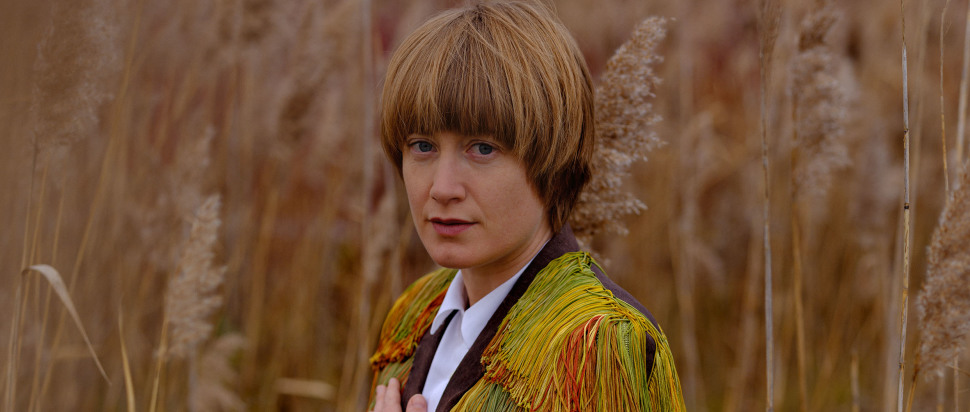A Change in the Weather Station: Tamara Lindeman Interview
Following the release of two brilliant records, and ahead of their appearance at Summerhall this August, we catch up with The Weather Station's Tamara Lindeman
Every music fan is familiar with the plight of the great underappreciated artist that releases record after record of beautifully expressive, personal music, only for the outside world to perennially look the other way. For a number of years, it appeared that this might have been the fate of Tamara Lindeman, the Toronto singer-songwriter known professionally as The Weather Station. Across four albums from 2009 to 2017, her idiosyncratic and experimental folk, although celebrated locally, was largely overlooked beyond a small, select band of loyal followers. And then, in early 2021, it all changed.
Ignorance, Lindeman’s fifth full-length studio release, took off. Received with rapturous acclaim across the board, it finally saw The Weather Station elevated to a new platform. Its rich, luscious, woodwind-adorned arrangements, paired with Lindeman’s lyrics – on the one hand intimately personal, on the other flying a brazenly political and ecological flag – hit a nerve with audiences.
“It’s what you hope for, right?!” says Lindeman, unable to contain the broadest of smiles as we speak over Zoom. “You work hard and try to make the best work and [hope] that people will care. But it was much beyond what I was expecting. I’m still absorbing it, honestly. It all happened so fast, I have to take time to think back and remember that happened and to be grateful.”
Lindeman moved quickly in the light of this newfound success, releasing follow-up album How Is It That I Should Look at the Stars just a year later. The newer album, made up of songs written and developed at the same time as those on Ignorance, is a very different animal, however. Where its predecessor revelled in a maximalist sheen, this album is as delicate as porcelain, its gentle, drum-free arrangements lending it a precious, personal closeness.
It would, at first glance, appear to be a ballsy move, with Lindeman deliberately resisting the temptation to reach for the pop spotlight at the moment that it finally shone upon her, but she insists that the plan for the two albums was in place before she learned of the reception that Ignorance was to earn. “It wasn’t intentional,” she explains. “I had no idea what would happen with Ignorance when I made How Is It..., I just wanted to record those songs in that way. I really don’t think that I had any strategy in how it would come across, it was just a very pure desire to make that record that way.”
The songs on How Is It... are so treasured by Lindeman that she briefly considered making them a highly limited, vinyl-only release, before finally deciding that they deserved the same exposure as their siblings on Ignorance. “Ignorance is so forward, and this is the retreat,” is how Lindeman frames it. “There are songs on How Is It... that complete the picture that was started on Ignorance.”
Recorded largely in a live setting, with Lindeman and band performing in the moment, the goal was to tinker with the recording process as little as possible. “There is a sense from some records, a sensation of floating, or of being untethered from everything, this eeriness. I was thinking a lot about air and water and this sensation of floating, that was why I didn’t want drums to ground it. Even though it was a challenge and scary, I really tried to capture something of that live moment. That record to me feels so complete, it’s very much itself, which I really like.”
Lindeman’s willingness to embrace unconventional production choices and leftfield song arrangements is no doubt linked to her association with the experimental music scene in Toronto, to which she remains affectionately tied. Largely focused around the legendary DIY space Tranzac Club and names such as Sandro Perri and Jennifer Castle, the city remains home to a broad range of underground artistic styles and Lindeman continues to draw her band members from the city.
“It’s a big, complex scene,” she says. “There are virtuosic musicians, and it’s not really about pursuing success. There is a lot of avant-garde, very strange music happening. I feel really lucky that the scene has been so nurturing, it’s very collaborative and open. It’s the reason I’m still in Toronto.”
For now, Lindeman remains committed to following her own instincts, bolstered by the fact that there is now a long-term payoff to her years of hard work. “Any time anyone likes a record, it’s like, 'Oh no, do I have to keep doing that to please these people?' But you have to say no to all of those impulses, because they will just lead you astray. What I do next has to have its own purpose to exist. I think both of these records really had a purpose, and that’s why they’re good.”
The Weather Station play Summerhall, Edinburgh, 31 Aug
theweatherstation.net
